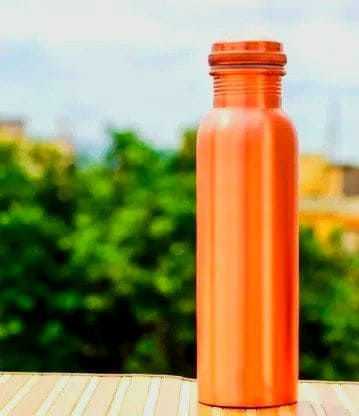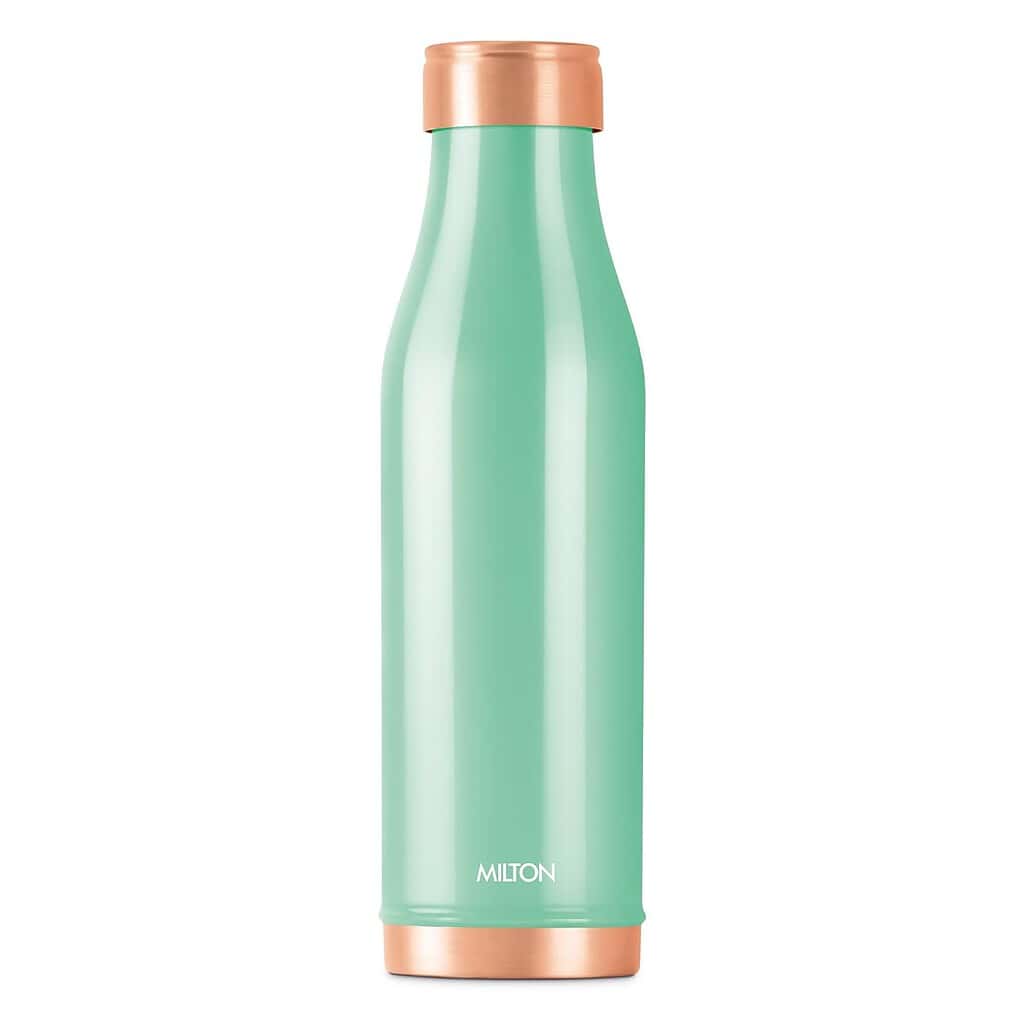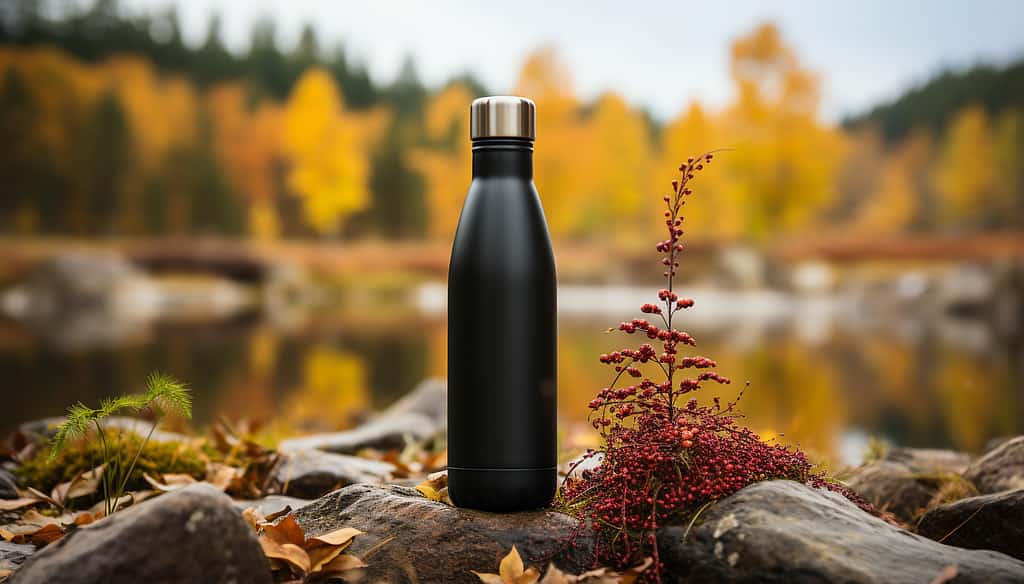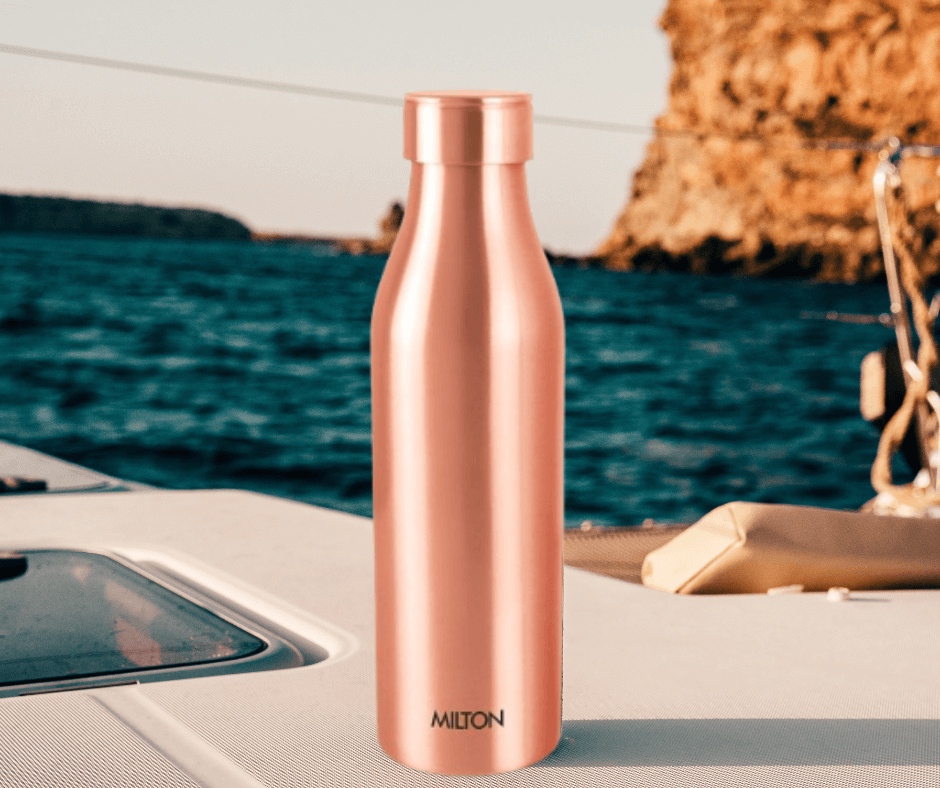In recent years, the use of copper bottles for drinking water has gained significant popularity due to their perceived health benefits. Proponents of copper bottles claim that they offer various advantages over regular bottles, such as improved water quality and potential health benefits. However, before making a choice, it is essential to consider both the advantages and disadvantages of each option. In this article, we will compare Milton copper bottles and regular bottles, discussing their features, potential health effects, and overall suitability for everyday use.

What are Milton Copper Bottles?
Milton copper bottles are water containers made from pure copper, a metal known for its antimicrobial properties and potential health benefits. These bottles are designed to hold and store water, keeping it fresh and contaminant-free for a long time.

What are Regular Bottles?
Regular bottles, on the other hand, encompass a wide range of materials, including plastic, glass, stainless steel, and aluminium. They are commonly used for storing beverages like water, soda, or juice. Glass stainless steel, aluminium are steel okay but is it Safe to Drink Water in Plastic Bottles???
The Advantages of Milton Copper Bottles
1. Naturally Antimicrobial Properties
Copper possesses inherent antimicrobial properties that can inhibit the growth of harmful bacteria and viruses. This feature makes Milton copper bottles an excellent option for individuals concerned about the hygiene of their drinking water.
2. Improved Water Quality
Advocates of copper bottles claim that storing water in copper containers can positively influence its quality by reducing impurities and enhancing taste. Copper has the ability to neutralize certain toxins and purify the water, potentially providing a refreshing and healthier drinking experience.
3. Environmental Considerations
Copper is a durable and recyclable material, making Milton copper bottles an environmentally friendly choice. Opting for these bottles can contribute to reducing single-use plastic waste and lowering the environmental impact of disposable water bottles.
The Disadvantages of Milton Copper Bottles
1. Initial Cost
Compared to regular bottles, Milton copper bottles tend to be more expensive initially. However, their long-term benefits may justify the higher investment for some consumers.
2. Maintenance and Care
Copper requires regular maintenance to preserve its luster and prevent tarnishing. Improper care, such as exposure to certain substances, can negatively impact the water quality and the bottle’s effectiveness over time.
3. Allergies and Sensitivities
Some individuals may be allergic to copper or experience skin sensitivities upon contact. People with known copper allergies should exercise caution or opt for alternative bottle materials.
The Advantages of Regular Bottles

1. Affordable and Widely Available
Regular bottles made of materials like plastic or stainless steel are widely available and generally more budget-friendly than copper bottles. This accessibility makes them a convenient choice for most consumers.
2. Diverse Material Options
Regular bottles offer a wide range of material options to suit individual preferences. For example, those concerned about the taste of water might choose stainless steel or glass, while those looking for lightweight and portable options might prefer plastic bottles.
3. Easy to Clean and Maintain
Cleaning and maintaining regular bottles are usually straightforward, and they do not require special care as copper bottles do.
The Disadvantages of Regular Bottles

1. Potential Chemical Leaching
Plastic bottles, in particular, have raised concerns about the potential leaching of harmful chemicals into the water, especially when exposed to heat or sunlight.
2. Limited Environmental Benefits
Unlike copper bottles, which promote eco-friendliness, some regular bottles contribute to plastic waste that poses environmental challenges.
Health Considerations with Copper Bottles
1. Copper’s Role in the Body
Copper is an essential mineral that plays a vital role in various physiological processes, such as iron absorption, collagen production, and the function of antioxidant enzymes.
2. Copper as an Antioxidant
Copper acts as an antioxidant, helping to neutralize free radicals and protect cells from oxidative stress.
3. Potential Risks of Excess Copper
While copper is necessary for good health, excessive intake from water stored in copper bottles could lead to copper toxicity, causing symptoms like nausea, vomiting, and abdominal pain.
Health Considerations with Regular Bottles
1. Material Safety
Different materials used in regular bottles can have varying safety levels. For instance, some plastics may contain harmful substances like BPA, which is a known endocrine disruptor.
2. Plastic Bottle Concerns
Plastic bottles have been a topic of concern due to their environmental impact and potential health risks associated with chemical leaching.
3. Impact on Water Taste
Depending on the bottle material, regular bottles may alter the taste of water, affecting the overall drinking experience.
Which One Should You Choose?
The choice between Milton copper bottles and regular bottles depends on individual preferences, budget, and health considerations. Those who prioritize the potential health benefits and antimicrobial properties of copper may opt for Milton copper bottles, despite the higher initial cost and maintenance requirements. On the other hand, individuals who prioritize affordability, accessibility, and diverse material options may lean towards regular bottles.
Where to Buy Milton Copper Bottles
If you are interested in purchasing Milton Copper Bottles, they are available for sale on the official Milton website, as well as various online retailers. Guarantee that you purchase from confided in sources to ensure the genuineness and nature of the item.
Check out on milton website
Check out on amazon
Check out on Flipkart
Conclusion
In conclusion, both Milton copper bottles and regular bottles have their unique advantages and disadvantages. While Milton copper bottles offer antimicrobial properties, improved water quality, and eco-friendliness, they require proper maintenance and might not be suitable for those with copper allergies. Regular bottles, on the other hand, are affordable, widely available, and come in various materials, but they may pose environmental and potential health risks.
Ultimately, the choice between these two types of bottles should be based on individual needs, preferences, and health considerations. It is essential to make an informed decision that aligns with your lifestyle and values.
FAQs
1. Are Milton copper bottles safe for daily use?
Yes, Milton copper bottles are generally safe for daily use. However, individuals with known copper allergies should exercise caution.
2. Can copper bottles improve the immune system?
Copper’s antioxidant properties may have a positive impact on the immune system. However, overall immune health depends on various factors, including diet and lifestyle.
3. Do regular bottles affect the taste of water?
Yes, depending on the material, regular bottles can influence the taste of water, particularly in the case of plastic bottles.
4. What is the shelf life of Milton copper bottles?
With proper care, Milton copper bottles can last for a long time, providing years of usage.
5. Can copper bottles help with joint pain?
There is no scientific evidence supporting the claim that copper bottles alleviate joint pain. Joint health is influenced by various factors, and consulting a healthcare professional is advised for proper treatment.

